Top Techniques to Boost Your Independence
- Happy & Authentic
- Adaptability, Authenticity, Creativity, Happiness, Independence
- on Sep, 10, 2017
- No Comments
If you’ve watched my video about independence and you’d like to learn some simple ways to start being less dependent on others, this is definitely the article for you!
If you haven’t watched the video yet, I’ve embedded it below for your convenience. It explains all the ways being independent can make you happier and healthier. Some are very surprising – especially number 1! After watching the video, read the rest of this article to discover precise ways to develop a more independent lifestyle.
All righty then. So what does it really mean to be independent? Well, as I said in my video, True Independence is comprised of four parts: financial independence, emotional independence, physical independence and mental independence. This means you are in charge of your own finances, your own emotions, your own actions and your own thoughts. You don’t ask anyone for permission to spend your own money. You don’t blame other people for how you feel. You can carry out necessary tasks on your own. You make sense of the world based on your own observations and experiences rather than depending on what others tell you.
Now that we’re all on the same page, here are some sure-fire ways to go from dependent or codependent, to completely independent.
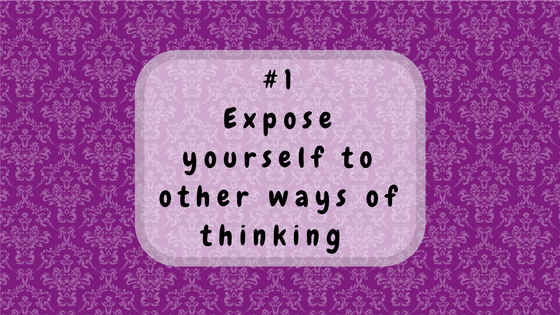
Coming into contact with ways of living different from our own exposes us to new ways of thinking. Whether you experience these traditions, environments, people or activities yourself, through a screen or by meeting people from other countries, the result is the same. However, it’s important that you keep an open mind as you come into contact with any new point of view. If you maintain a narrow mindset, it doesn’t matter how much you experience – your perceptions will remain limited. The more opinions you know are out there, the more easily you will embrace independent thinking that doesn’t depend on what others have told you to think. If you’re an introvert and need a little more help to learn how to socialize, click here.
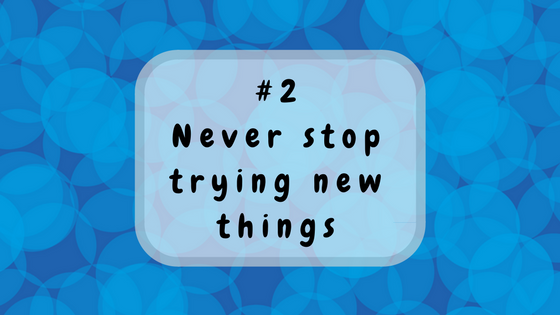
This involves actively putting yourself in situations that lead to the discovery of new skills. If done properly, it will broaden our possibilities in life. Most people tend to live life on auto-pilot – watching TV on a regular schedule, spending time with the same people, doing and talking about similar things. But when you do things you’ve never done before, it teaches you something new about yourself, gives you insights about the world and changes the way you think. The more you expand your experiences and move out of your comfort zone the more you learn about yourself and the more confidence you gain in your own abilities and ways of thinking. If you’d like to learn easy ways to learn a new thing every single day, click here.
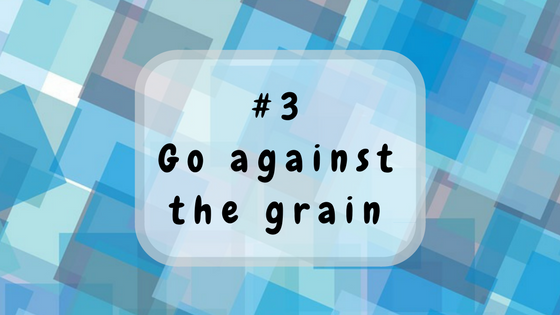
This refers to doing what you feel is best for you, instead of blindly doing what you’re told you should. Carve your own path and make your own decisions. Just because everyone else is living life a certain way, that doesn’t mean you have to do the same. Sure, the well-trodden path is easy to follow and offers a few perks, but if it wasn’t made by you, it probably isn’t for you. It’s okay to decide to take the same road as another, as long as this decision was intentional and well-thought-out, so that you take your individuality into consideration. Click here, if you need some help finding your own path.
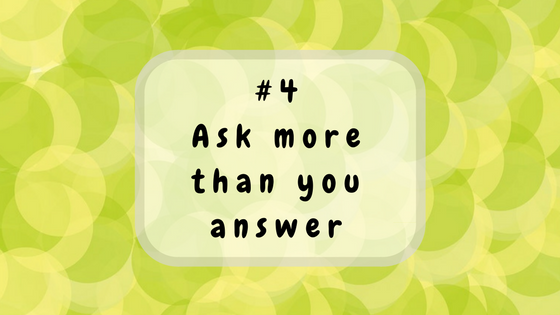
No one is born independent. We all have to learn from others or from our own experiences. It’s great, if you’re the kind of person who prefers to learn by doing, but this takes significantly longer than learning from someone who’s already been there. If you develop a healthy questioning attitude, become inquisitive enough to ask others about their experience, you’ll save yourself some trial and error. Today there is so much information available through books and websites that you can absorb lifetimes of experience in just a few months or years of diligent reading. This can provide you with enough knowledge to become independent quicker than you otherwise would have. Here’s some great advice on how to develop this kind of inquisitive mindset.
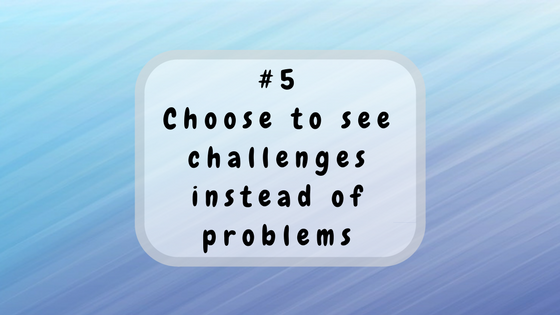
There will always be hiccups in the road you choose, no matter how good you are at what you do. When you encounter these issues, the attitude you choose to meet them with can make the difference between developing independence and giving in to co-dependence. Some people who see problems everywhere are afraid to face them head-on. They shy away from conflict and difficulty, so they never grow stronger or more confident in their skills. Those who accept the challenge and look for solutions are much better off, as their willingness to work on the situation develops their skills and self-esteem. Eventually, this makes them more willing to face future problems and independence ensues. For more detailed advice on how to focus on solutions instead of seeing problems everywhere, click here.
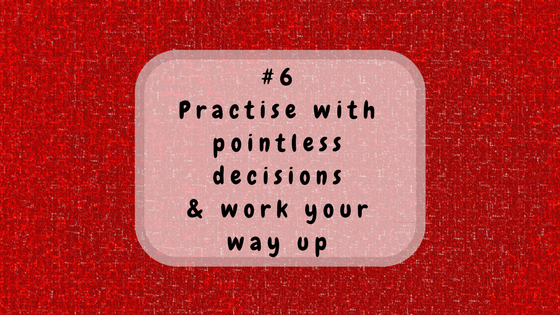
Believe it or not, some decisions don’t matter very much. Whether you order Indian or Chinese for dinner, the result is the same. If you find it hard to make a decision without consulting a parent, a friend or a significant other, you can’t go from zero to a hundred. You need to start small, with baby steps. So start with decisions that have little risk instead of going straight into life or death decisions that could make or break your life. This will slowly build your confidence in your own judgment, so that you can later make choices with a bigger impact. If you’re still scared of making decisions after a little practise, click here to learn a quick and fool-proof way to get over any fear.
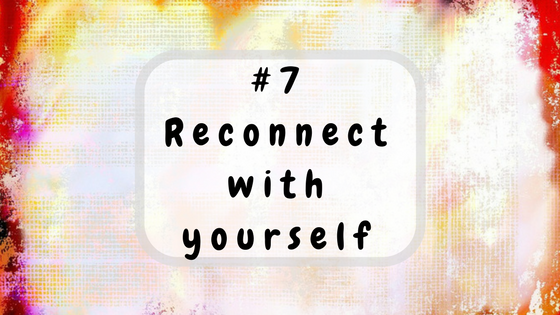
When you’ve spent many years focusing on what another person thinks, you can lose yourself in the process. A great way to get back in touch with who you are is to take some alone time and focus on something you enjoy doing. Maybe you like free-writing, or drawing, jogging or dancing. Whatever it is, ask yourself what you like about it and how it makes you feel. Slowly add more items to the list of things you learn about yourself until you’re comfortable taking this test. It will guide you through a process to discover what your core values are. Once you know what is most important to you in this life, then you will have a stronger sense of your priorities. This will help you make decisions more easily, because you will have a much clearer idea of the “why” behind your decisions. If you need some help being your most authentic self, click here.

This advice has been given to people so often, it’s lapsed into the world of cliché. But it still rings true regardless. If there’s anything you don’t feel confident doing yourself, pretend you are the kind of person who can. Try to imagine what an independent person would look like, how they would stand, how they would talk and how they would think and reason with themselves and others. Visualize yourself as that person doing those things, then imagine what it would be like, if you felt independent. This should spur you to at least give it a shot, because your physiology can have a powerful influence on how you feel. Click here to read about the power of using your body to change your emotions, if you want more details. And if you need more help visualizing properly, click here for a guided 5-step visualization technique.
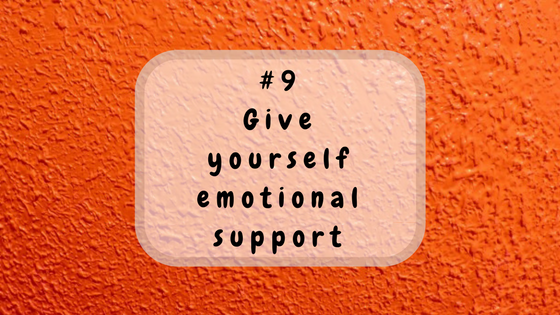
Sometimes the only thing making us feel like we need someone else’s support, is because we become overwhelmed by our emotions. But when you know what really causes emotions, it becomes way easier to control your reactions to them. In this article, I teach you how to decode what each emotion is trying to tell you, so you can make good use of those signals. All you need to know is that your emotions are within your power to control and to change. No one else has the power to influence how you feel, because you can regulate it all with the power of your own thoughts. If you have associated negative emotions with past experiences of independence, then click here to learn how to overcome a problematic past.
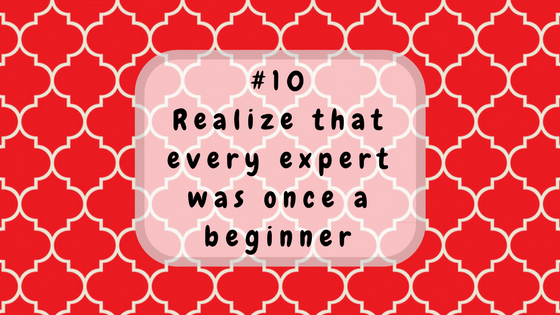
Independent people embrace their current skill level and don’t shy away from a learning experience. Perhaps you’re holding yourself back from trying things yourself because you’re comparing yourself to people who are already very skilled at these same things. It’s fine to want to know where you stand in a hierarchy that’s meaningful to you, otherwise you’d never have any reason to improve. But it’s crucial that you don’t compare your level one to an expert’s level ten too soon. A lot of people struggle with this, especially perfectionists, so I’ve created an article that can help you stop comparing yourself to others. Click here, if you’d like to learn more.
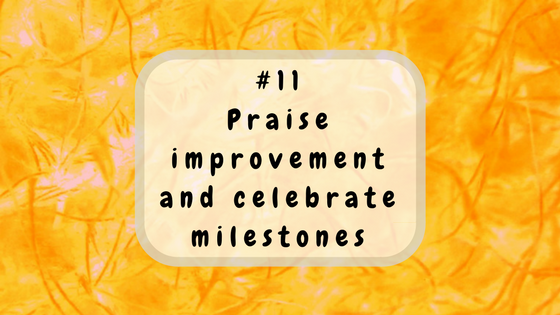
When a baby takes his or her first steps, the parents explode with praise to make sure the child knows they accomplished something worth celebrating. It’s a small victory, but it’s a necessary stepping stone in order for the child to learn bigger and better skills like climbing and running. It’s the same with older humans like yourself. If you have only ever eaten food that someone else made for you and one day you make a sandwich for yourself, that deserves to be encouraged. Celebrating these little improvements triggers the brain’s reward centre, which makes you want to keep trying – a prerequisite to improving. So every time you make even the slightest progress towards being more independent, make sure you treat yourself, even if it’s just a small compliment or a trip to the candy store. Trust me, it works!
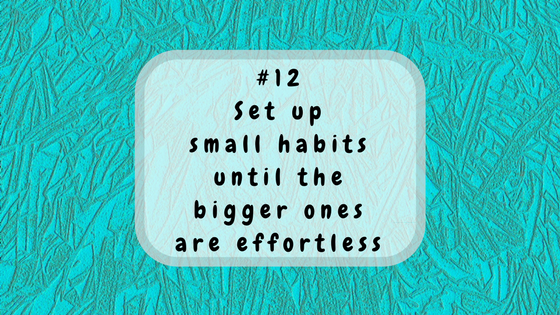
When you go from being completely reliant on another person to doing everything entirely on your own, it can be a major shock. If you want to make the transition smoother and easier to accept, create little habits over time, instead of trying to change everything all at once. For example, if you would like to cook for yourself every day, start with the decision to cook your own dinner every Sunday. After a few weeks of this, when it no longer feels like a foreign concept, add another day. This approach takes a while to establish, but by the time you add that last day, you won’t even remember why it felt so hard in the first place. For more detailed instructions on setting small (or large) goals, click here.
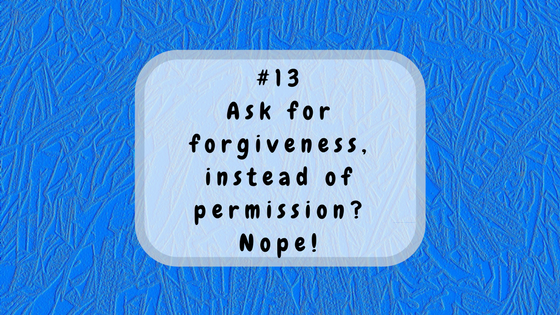
This one’s a bit controversial, depending on your circumstances. A lot of the time, dependent people find it easier to ask for permission to do something, rather than ask for forgiveness, if what they’ve done isn’t well-received. Some people would advise you to reverse this pattern, so that you become comfortable apologizing after you’ve already made the decision you want. But I believe that, if you feel the need to apologize and ask to be forgiven, that’s still a form of dependence. I’m not saying you should completely disregard everyone else’s feelings and needs every time you make a decision for yourself. I’m saying that, if the decision doesn’t directly affect another person in a negative way, and it is in alignment with your core values, you have nothing to apologize for. Very few people truly need to give us permission for anything in life. Learn to recognize when it’s appropriate and when you’re just letting someone walk all over you. It’s okay to ask a trusted friend for their opinion, but don’t allow their view of the situation to affect your decision, if you’ve already made up your mind. You’re never going to please everyone, so make sure you do what you personally feel is right.
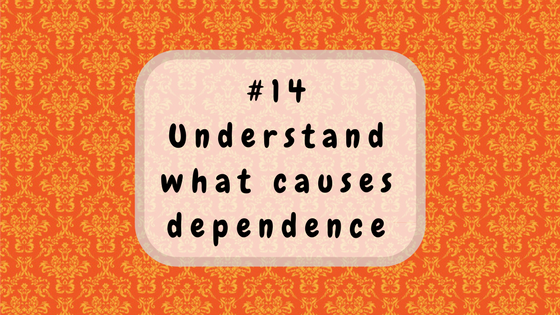
As social creatures, humans experience a release of oxytocin when we belong to a group. It makes us feel safe and its levels drop when we try to do too much on our own. We’ve evolved a little too fast for our brain chemistry to keep up, so as long as you understand why you feel the way you do in response to certain situations, you can override your instinctual feelings. Most day to day situations are fairly safe to navigate on our own, but sometimes – especially when we experience a situation we’ve never encountered before – our brain might tell us we’re not safe, even though we are. If you can catch yourself and dispel your irrational fears, you can stop yourself from staying in a dependent frame of mind.
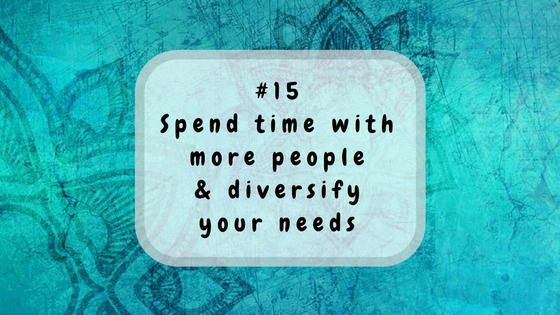
When you spend too much time with just one person, it’s easy to become dependent on them. Sometimes it can even reach a point where being without that person gives you anxiety. A healthier way to go about life is to divide your interpersonal needs among a multitude of people, so that you’re not overly reliant on just one or two. That way, if your ties with one of them become severed, you still have others you can spend time with. The trick here is to constantly renew old friendships while making new ones, in case you lose touch. Spend time with family members you trust, but maintain a network of people who are different enough to fulfil different needs for you. One person should never be your entire source of happiness. The trick is to learn how to make meaningful connections with almost everyone you meet, so they can become potential friends easily. If you’d like to learn how to get anyone to connect to you on such a deep level, click here.
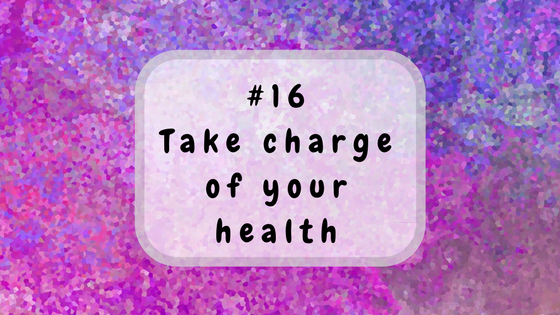
If you’re not healthy, it becomes harder to stay in control of other areas of your life. I have multiple tips for staying in good physical health. Click here, if you’d like to figure out the ideal diet for your body. Click here, if you need expert tips to improve the quality of your sleep. Click here, if you know you need more exercise, but don’t have the time. Click here, if you’d like to learn some easy ways to spend more time outdoors. Finally, click here, if you’d like to learn some simple tricks to drink more water.
Some extra tips that aren’t included in those articles are:
-
Don’t eat when you’re not hungry, just because someone else feels like eating. It’s tempting to use food as an excuse to socialize, but this can mess with your metabolism in a serious way.
-
Don’t stay up when you’d rather be sleeping or go to sleep before your preferred bedtime, just because you’d like to go to bed with a significant other. I know it feels great to cuddle as you fall asleep, but if they want to stay up or go to sleep at different times, it’s important not to force a shared sleep schedule.
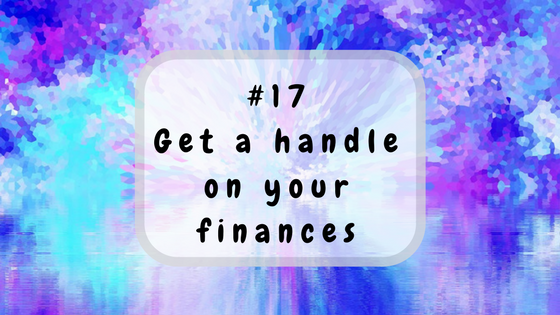
There are two kinds of financial independence. The first kind is making your own money and having complete control over how you spend it. The second kind is making enough to live a comfortable life without constantly worrying about how you’re going to afford things. If you don’t already have a means of earning your own cash, that’s the first step to becoming free of relying on others. Once that’s sorted, it’s important to understand how to budget, save and invest that money in order to make the most of it. I’m not a financial adviser, so finding someone who is would be the first step. They’re way more qualified than me to give you personalized financial advice based on your situation. One tip I do feel comfortable giving you, however, would be not to spend money on things you don’t need. A while back I wrote an article about minimalism. It can really help you cut down on unnecessary spending, so if you feel like you’re spending more than you need to, click here to learn how to control it.
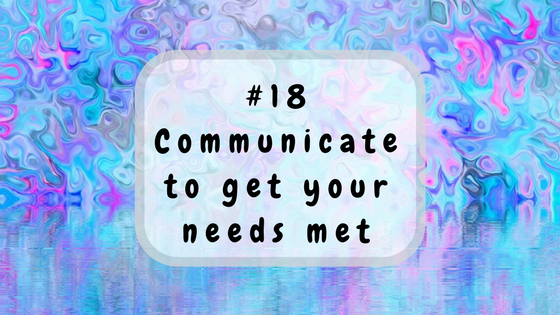
Dependent people are sometimes too scared to let others know how they feel, because they don’t want to be judged or rejected. But communicating your needs is a necessary component to happy and authentic living. You can’t expect to lead a healthy emotional or mental existence, if you’re willing to sacrifice your needs merely because you refuse to let others know about them. Conflicts can and will inevitably arise in these situations, because sometimes your needs will be different to the needs of others. The trick to maintaining your independence while letting others know what you need is to learn how to successfully resolve conflicts as they come up. Click here to learn 10 unexpected ways to deal with these kinds of situations.
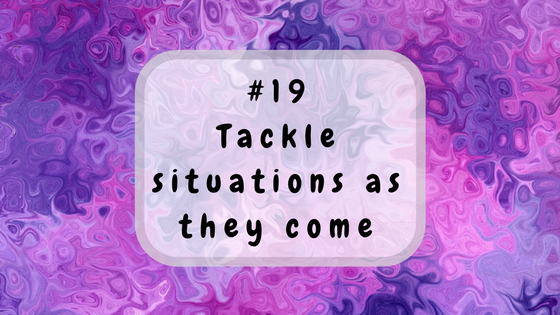
Most of the time, people become dependent on others out of fear. They’re scared that they don’t have what it takes to handle a certain situation or that they will fail in some way. As a result, they remain in the situation they know, even if it’s not ideal, because it feels more manageable. The best way to conquer these fearful emotions is to tackle each moment as it comes, instead of worrying about the future or thinking about a past negative experience that seems similar to the present one. Your thoughts can create powerful emotions that psyche you out and stop you from acting properly. Being mindfully aware of the present moment keeps these thoughts at bay. For more information and specific tips on how to develop this “be here now” mentality, click here. Trust me, it will be the best decision you ever make.
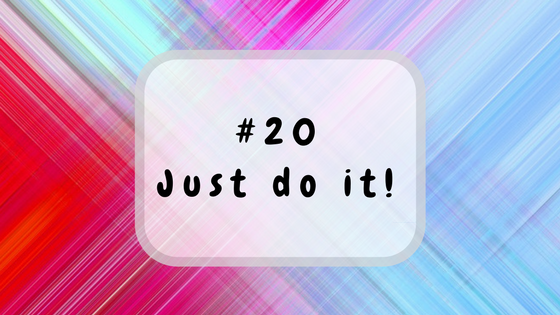
Sometimes it's just that simple. You can never truly be independent just by knowing the theory alone. At some point you need to jump right into the action and put that knowledge into practise. It will be uncomfortable at first, maybe even scary. But the more you put yourself in situations where you assert your independence, the easier and less frightening it will get. It takes time, so don't rush yourself. Don't expect to be amazing at it in a day or a week. These things don't happen overnight, so stick with it and keep your goal in mind. You won't necessarily realize the moment when you go from dependent to independent. It's a gradual process, not an instant result.
Try out these tips and if you’re still finding this advice hard to implement, ask for help in the comments below, send me a message, or book a FREE breakthrough session to see how I can help you through Skype.
You can find more Happiness Strategy videos on my YouTube channel, so subscribe to make sure you never miss an episode! I come out with a new one every single Sunday.
Until next time, remember: Happiness doesn’t require energy. It requires Strategy.


